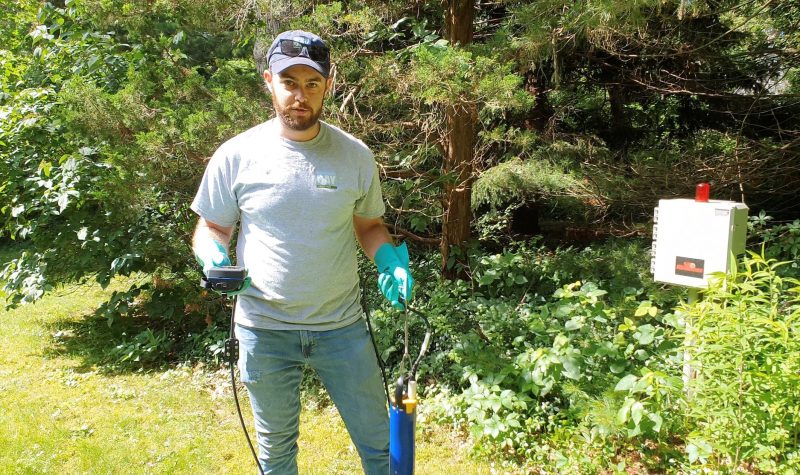Innovative Septic System Monitoring Begins
Always seeking to improve the effectiveness and efficiency of its work to protect and clean up Buzzards Bay, the Buzzards Bay Coalition recently began testing new technology that should do just that.
Conventional septic systems are the largest source of nitrogen pollution to many of our harbors and coves. Replacing these conventional septic systems with sewer or nitrogen reducing septic systems is critical to cleaning up our coastal waters. While municipal sewers are most effective at reducing nitrogen in wastewater, many towns do not have the density to support sewers and instead rely on septic systems for wastewater treatment and disposal.
Thirty neighbors in West Falmouth took action to replace conventional septic systems with state-of-the-art nitrogen reducing septic systems to reduce the amount of nitrogen polluting West Falmouth Harbor. (link to previous story) To determine how effective these systems are at reducing nitrogen, monthly samples of the wastewater from each system are taken by hand and transported to a lab. After several weeks the lab reports the amount of nitrogen being discharged from each system on the date the samples were taken. The delay between when the sample is taken and when the lab reports the result makes optimizing the performance of nitrogen reducing septic systems challenging.
Individual homes use water differently and during different times of the year making it necessary to adjust these systems to maximize treatment and nitrogen removal. Waiting three of four weeks for labs results prevents making the necessary real-time adjustments that can maximize performance. The Coalition is testing technology that could change that.
This summer the Coalition launched a yearlong demonstration project to use new technology to provide real-time nitrogen results. The program, funded by U.S. NEP through its Southeastern New England Coastal Watersheds Grant Program, will optimize the performance of nitrogen reducing septic systems to reduce nitrogen pollution to West Falmouth Harbor.

Coalition Water Resource Specialist Joe Brennan uses the new equipment to test nitrogen levels in septic systems
Staff will use hand-held equipment that includes nitrogen sensors that will automatically report nitrogen levels in the septic system. Staff will continue to collect water samples and take them to the lab to verify the results of the new equipment.
“Understanding how much nitrogen is in the septic system at any given moment will allow system operators to refine the operation to maximize the amount of nitrogen removed,” explained Korrin Petersen, Vice President for Clean Water Advocacy. “If successful, this promising new technology will reduce lab costs, thereby reducing costs to homeowners making these systems more affordable.”